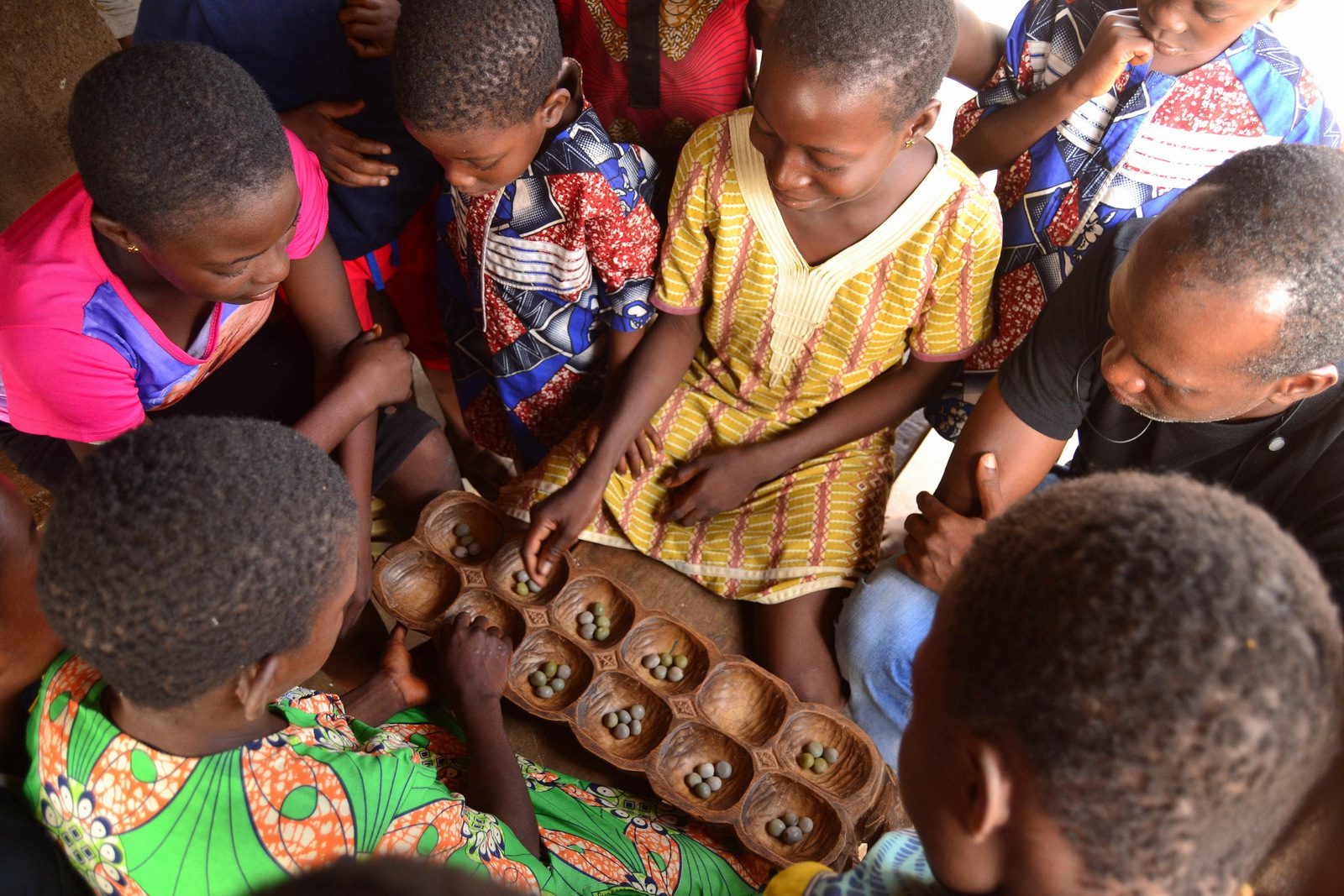
Eradicating Child Domestic work and Child Trafficking in West and Central Africa
From the Project Summary
The initiation of children into work as part of a traditional system of education has been perverted into a commercial transaction that leads to the trafficking of children from villages to the towns and between countries within West and Central Africa. The research and campaigns to alert the public to the negative aspects of this child labour have provided information concerning the size of the market. The phenomenon persists despite government concern and their commitment to introduce the necessary legislative measures. These efforts are praiseworthy, but it is essential that legislation is adapted to the real situations of the children working away from home (visits to parents, illegal movement and trafficking of children) and consolidated with clear mechanisms for criminalizing the trafficking of children and prosecuting the traffickers.
Participation of children in discussions about their situation is indispensable to finding solutions for child labour, deprivation of education, non-respect for their dignity and general violations of a child’s rights. There is also the need to develop processes for consulting parents, employers, employers’ associations and trade unions on issues that need to be taken into account concerning child domestic workers of pre-school and school age. Collaboration must be established between governments, bilateral institutions and national and international NGOs to develop actions for the education and rehabilitation of child domestic workers and child victims of trafficking. This will allow the phenomenon of child trafficking to be tackled at national, sub-regional and international levels. However, evaluation of such interventions is needed to identify the responsibility for better coordination of this work with the views of the child victims and their families.
The project began by undertaking complementary research studies, establishing a network of NGOs and linking them with international institutions working for the implementation of the Conventions concerning the human rights of children and those covering the worst forms of child labour. Training of the NGO partners engaged in the protection of child rights was an important element of the project in order to reinforce their capacity for intervention on issues of child domestic work and child trafficking.
Various seminars and consultations were organised to consult children on the issues and to allow the NGO partners to define acceptable norms for the employment of children as domestic servants (meeting of child domestic workers from Bénin and Togo in Lomé in July 2001, national consultation in Bénin (Cotonou, 2/3 November 2001) and Togo (Lomé, 9 November 2001), and partner meeting for Burkina Faso and Niger (Niamey, 26/27 September 2002).
A sub-regional consultation for representatives of nine countries (Bénin, Burkina Faso, Gabon, Ghana, Guinea Conakry, Mali, Niger, Senegal and Togo) was held in Lomé, Togo in December 2002, to analyse the reports from the project, based on a summary report prepared by a consultant.
These discussions underlined the complexity of the issue of child labour. Child domestic workers are employed within an informal family environment and cannot be integrated as a professional group within conventional working systems. Such integration would presuppose an acceptance of the idea of child labour. Similarly, the terms norms and standards were also considered inappropriate as seeming to regularise the employment of children. Such terminology implies the integration of child labour into the normal labour laws, whereas the context in which children work is a social system which is neither determined by the laws nor included in national policies concerning the well-being and fundamental rights of children.
Click here to read the full report.
